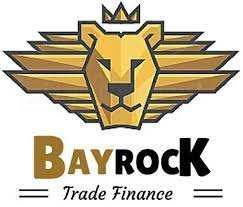Project Loan
Project Loan is provided to corporate borrowers for the purpose of capital expenditure including setting up of new or additional manufacturing facilities, construction, etc.

Obtaining Collateral
Bayrock Services, Ltd can assist with obtaining collateral to help projects secure funding.

Project Support
Bayrock Services, Ltd does not just lend money. We work side by side with the project owner to ensure success.

Capital Funding
Bayrock Services Capital funding process consists of going through our complete funding stages to assist our clients.

100% Project Funding!
Bayrock Services, Ltd
International Project Finance
For businesses or non-profit organizations undertaking capital projects such as building acquisition, renovation, leasehold improvements, or equipment that need additional subordinate financing to complete the project. The Project Loan supports businesses and non-profits undertaking projects, such as building acquisition, renovation, leasehold improvements, or equipment purchases that need additional financing to complete the project. Bayrock Services can typically fund up to 100% of the total project cost (with a maximum loan size of $250,000,000), and borrowers must create at least 1 new full-time equivalent job for every $210,000 lent.
Uses:
- Property Acquisition
- Construction / Building Renovation
- Machinery and Equipment
- Soft Costs – legal, accounting, engineering, architectural fees, permits, appraisals, and other related expenditures
Bayrock Services Project Loan
Hotel And Solar Project Finance
A loan is released to the borrower for the investment in fixed assets with regards to financing new property, extension or renovation of the existing property, new development, or acquisition.
The flexible term, mid-to-long term, or sometimes short-term loan for quick turnaround of fast cash.
Different combinations, if required by the customers, bank acceptance draft or non-financing guarantee can be issued under the project loan or applying for domestic or international trade finance.
1. Customers submit a written application and all the required written documents.
2. Once the application is accepted, Bayrock Services will proceed to due diligence, appraisal, review, and approval.
3. Both sides sign contract once the loan is approved.
The practice of hotel and solar project financing has emerged from several independent and overlapping strains of transactional practice, including traditional project finance secured lending, tax equity partnership, and lease structures, development financing from early-stage investors, joint ventures, and the frequent acquiring and flipping of projects that goes on among a wide variety of solar industry participants. Though at its core, solar project finance historically shares much with wind project finance as well as traditional energy finance, the unique issues associated with solar projects result in a highly specialized practice. For instance, the comparatively low technical risk of constructing and operating a properly sited hotel and solar facility, the reliance on large volumes of mass-produced component parts available in a global market, and the opportunities for developing distributed generation projects on residential rooftops and in community solar gardens set solar projects apart from other electricity-generating projects.
Developers, independent power producers, solar panel manufacturers, engineering, procurement, and construction (“EPC”) contractors, utility companies, financial investors, and, more recently, commercial, and industrial end-users all participate in the financing of solar and hotel projects in different manners and at various times. Though certain common structures dominate throughout the market, it is no exaggeration to say that no two deals are the same. It is also common for projects to change hands two- or three times during development before the sponsor seeks full-scale financing for a project, or for the same project to seek financing on more than one occasion. All hotel and solar industry participants are well-advised to remain on the lookout for issues that may impact a project’s ability to obtain financing, regardless of where in the pipeline or life cycle the project is.
Financing can be viewed as the epicenter of all aspects of project development. To survive the scrutiny that lenders and investors require to approve financing, all aspects of the project must be aligned, such that the result will be, a fully functioning, revenue-generating, and legally permitted project returning sufficient value to the investors. Accordingly, transacting on a hotel and solar project finance deal is not merely a negotiation of financial structuring but necessarily involves an analysis of real property rights, construction and development contracts, equipment warranties, power purchase and interconnection agreements, cash management, environmental permitting, energy regulatory matters, and, of course, tax analysis. This chapter begins with a brief discussion of the basic tenets of project finance; compares the alternative investment structures of debt financing, tax equity financing, and cash equity financing; and finally touches on the interplay between deal participants when those structures are used in combination.
Project Finance Basics
Risk Shifting: The golden rule of project finance is one of risk mitigation: the deal structure must allocate risks that could affect the project’s cash flow or assets to a creditworthy party with the ability to mitigate that risk. Much of the tension in negotiating a solar project financing will derive from each participant’s efforts to shift various risks to others while retaining the benefits that the participant seeks from the transaction. The project sponsor seeks to shift technology risks to the equipment manufacturer and construction contractor while preserving for itself as much of the cash flow and appreciation in project value as possible. The lender will seek to shift risk to the project owner by taking paramount positions in the project revenues and assets, and to third parties such as the equipment manufacturer and construction contractor by getting the benefit of the warranties and contractual obligations of these participants, all to enhance the prospect of the loan being repaid on schedule. The tax equity investor will aim to push all project-specific risks on the sponsor through broad representations and warranties, backed up by parent guaranties and sweeps of distributable cash.
The risks at issue in a project financing can be classified in many ways, but broadly speaking the major categories of risk include the following:
A. Construction risk – the likelihood that the project will reach commercial operation without running overbudget or behind schedule or encountering insurmountable construction issues.
B. Technology risk – whether the technology incorporated into the project will perform as functioned and whether it has been tested and proven.
C. Counterparty risk – will each project participant remain creditworthy, solvent, and capable of performing its contractual obligations when required of it, such as the EPC contractor’s capacity to pay its subcontractors, procure equipment when required, or make good on a warranty claim.
D. Revenue risk – a specific type of counterparty risk focusing on the certainty of payments received under the power purchase agreement (“PPA”) from the off-taker or, in a distributed generation or portfolio deals, the off-takers.
E. Operational risk – can the project be operated to achieve the level of performance and power output that was forecast in the project’s engineering and design plans, and what other factors (such as weather) can degrade this performance; and
F. Regulatory risk – the risk of governmental action interfering with the project, including denial of discretionary permitting approvals, changes in state programs authorizing a solar program, and changes in tax law applicable to the project.
Risk shifting may be accomplished by various legal undertakings: grants of liens on the project assets, revenues, and key project agreements; warranties and contractual requirements for the equipment and the work performed in making it operational; requirements for several types of insurance products to cover certain adverse events; and guaranties of each participant’s obligations from creditworthy entities. Project financing focuses on the negotiation and documentation of these risk-shifting devices and ordinarily results in documentation of substantial length and complexity.
Challenge Loans
Bayrock Services Partnership Challenge Loan program allows us to work with private and nonprofit partners to provide numerous sources of capital for eligible businesses.
1. PURPOSE
To provide loan policies and procedures that are uniform and for quality control to
ensure good, consistent service.
2. SCOPE
The Bayrock Services Business Council Board of Directors and any staff that has oversight of
the Challenge loan portfolio or loan administration responsibilities. Please refer to the Bayrock Services Partnership Challenge Loan Program Rules and Regulations for detailed requirements and procedures.
3. DEFINITIONS
“Borrower” means a private development organization or a state development
organization, which applies for, commits to and is responsible for the repayment of
funds provided under this program;
“Business” means any existing enterprise which employs people within the state,
provides services within the state, uses resources within the state, or otherwise adds
economic value to goods, services, or resources within the state, and includes farm
and ranch operations;
“Cash or cash equivalent” means liquid assets including savings, checking and
money market accounts, certificates of deposit, stocks, bonds, or cash value life insurance or other similar assets. Equity in real estate holdings and other fixed assets are not to be considered liquid assets;
“Commercial Lender” means commercial institutions that loan money, including
banks, credit unions, mutual savings banks, savings and loan associations, stock
savings banks, or trust companies.
Partnership Challenge Loan
The Bayrock Services Business Council can partner with a local and international economic development organization to create combined loan proceeds that assist a business (third-party loan recipient). The state portion of the matching funds must be secured, cannot exceed $250,000,000, and have a maximum loan term of 10 years.
Bayrock Services Partnership Challenge Loan Program.
The original provisions of the Bayrock Services Partnership Challenge Loan Program authorized Bayrock Services to participate with local and international economic development organizations in matching loans for the benefit of area businesses. The following are some basic guidelines for that provision of the program:
- The applicant is a local economic or international development organization.
- Bayrock Services can participate in up to 100% of the project cost (if the loan does not to exceed $250,000,000)
- Bayrock Services and local economic development organizations would be expected to finance the project.
- Bayrock Services’ portion of the loan shall have at a minimum, the
following terms and conditions:
1. Minimum loan fee of 1%
2. Commitment period for loan disbursement not to exceed 2 years
4. Interest rate shall be a minimum of 4% (to be established by Bayrock Services Business Council Board)
5. Maximum repayment term not to exceed 20 years (we can amortize for a longer-term)
- All loans must be secured
- Applicants should use Bayrock Services Partnership Challenge Loan Application
Partnership Bridge Loan
The Bayrock Services Business Council can partner with a local and international economic development organization to create combined loan proceeds that assist a business (third-party loan recipient). The state portion of the matching funds must be secured, cannot exceed $250,000,000, and have a maximum loan term of 10 years.
Bayrock Services Partnership Challenge Loan Program.
The original provisions of the Bayrock Services Partnership Challenge Loan Program authorized Bayrock Services to participate with local and international economic development organizations in matching loans for the benefit of area businesses. The following are some basic guidelines for that provision of the program:
- The applicant is a local economic or international development organization.
- Bayrock Services can participate in up to 100% of the project cost (if the loan does not to exceed $250,000,000)
- Bayrock Services and local economic development organizations would be expected to finance the project.
- Bayrock Services’ portion of the loan shall have at a minimum, the
following terms and conditions:
1. Minimum loan fee of 1%
2. Commitment period for loan disbursement not to exceed 2 years
4. Interest rate shall be a minimum of 4% (to be established by Bayrock Services Business Council Board)
5. Maximum repayment term not to exceed 20 years (we can amortize for a longer-term)
- All loans must be secured
- Applicants should use Bayrock Services Partnership Challenge Loan Application
Natural Gas Fueling Infrastructure Loans
This program allows for a direct loan to a business for the purpose of financing qualifying costs to install a functioning natural gas filling station to fuel motor vehicles that operate on natural gas as a transportation fuel.
Large Project Loan
The Economic Development Large Project program authorizes Bayrock Services and its Partners to lend funds for the benefit of proposed or existing Bayrock businesses. The loan may finance the purchase, construction, and installation of buildings or equipment that will add economic value to goods, services, or resources.
Collateral Provided
NON-RECOURSE LOAN
OIL & GAS
TRADE
FINANCE!
We are Bayrock Services Limited, a professionally managed, responsible, and ethical company, determined to be widely recognized for our bespoke financial services specially designed for your Bank Guarantee (BG) and Standby Letter of credit (SBLC) lease.
MENU





